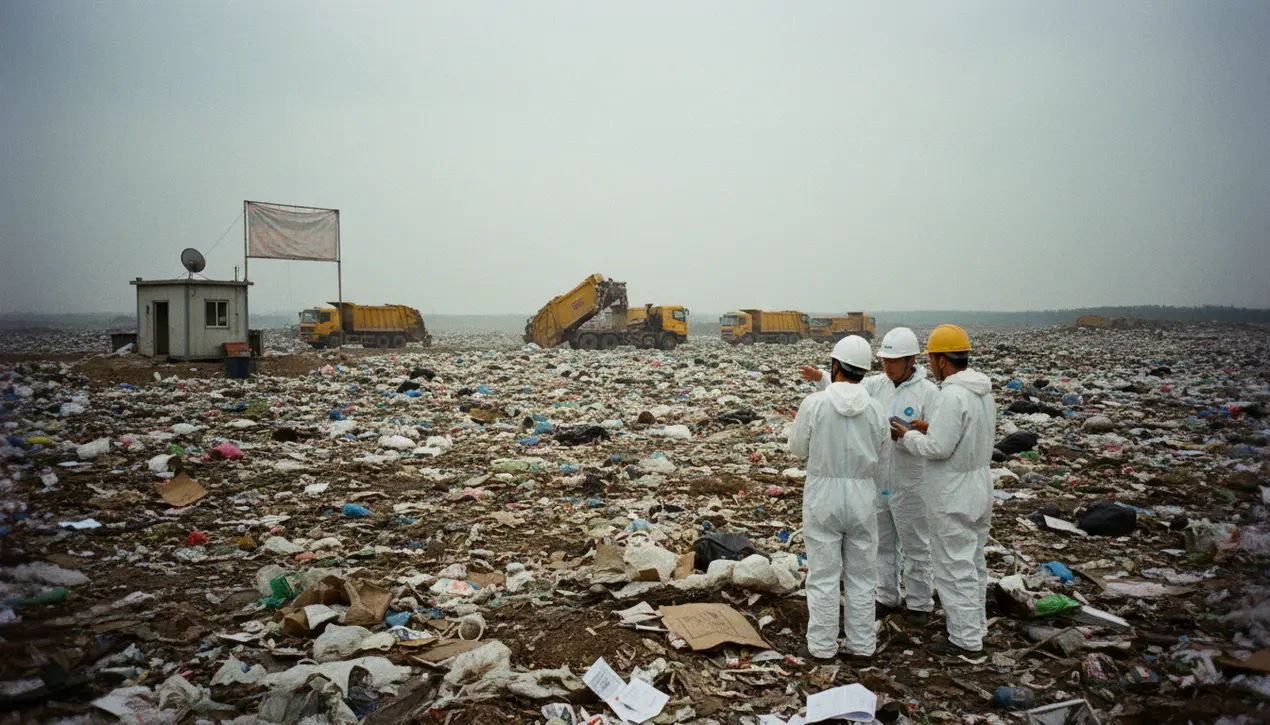
OthereducationEducational Policy
PhD Requirement for Landfill Job Sparks Credential Inflation Debate.
AN
Andrew Blake
2 hours ago7 min read1 comments
A recent job posting from a county sanitation office in Guangdong, China, demanding a PhD to oversee garbage trucks and landfill operations has ignited a fierce public debate, serving as a stark emblem of the rampant credential inflation sweeping through the nation's job market. This isn't just an isolated case of bureaucratic overreach; it's a symptom of a deeper, systemic issue where advanced degrees are becoming the default entry ticket for roles that historically required practical expertise and hands-on management.The Shixing county notice, framed as a search for 'urgently needed high-level talent,' fundamentally misconstrues what constitutes 'talent' for the gritty, essential work of waste management, a field where a doctorate in environmental science, while valuable for policy formulation, offers little advantage in the day-to-day logistics of coordinating collection routes or ensuring landfill compliance. This phenomenon, often termed 'degree devaluation,' is a global concern but is particularly acute in China, where a massive annual output of PhDs—the country is now the world's largest producer of doctoral graduates—collides with a job market that cannot absorb them all into traditional academic or high-level research roles.The consequence is a bizarre and inefficient trickle-down, where candidates with years of specialized research training are funneled into positions where their skills are underutilized, while simultaneously blocking pathways for experienced non-degree holders. Critics rightly point out that this creates a dual crisis: it devalues the PhD itself, making it a mere checkbox rather than a mark of genuine scholarly achievement, and it erects artificial barriers that prevent capable individuals from securing stable, respectable public service jobs.One can't help but draw parallels to other sectors; we've seen similar credential creep in administrative and mid-level management roles across the West, but the Chinese example is notable for its speed and scale. The local government's defense likely hinges on a desire for 'modernization' and 'expertise,' a top-down impulse to inject academic prestige into every facet of public administration.However, this overlooks the core competencies of the job—logistical acumen, personnel management, and a practical understanding of sanitation engineering—which are not typically the focus of a doctoral dissertation. The backlash on Chinese social media, filled with ridicule and disbelief, underscores a growing public frustration with a system that prioritizes paper qualifications over practical capability.This incident forces a broader conversation about the very purpose of higher education and its relationship to the labor market. Are we producing graduates to solve complex problems, or simply to accumulate credentials for their own sake? The landfill PhD requirement suggests the latter, a performative commitment to 'quality' that is, in reality, a profound misallocation of human capital.The long-term implications are worrying: a disillusioned generation of overqualified, underemployed graduates, a public sector losing touch with the practical realities of service delivery, and a widening gap between the educational haves and have-nots. It’s a curious, almost paradoxical situation where the pursuit of higher knowledge leads to a job supervising society's literal lowest common denominator—trash—highlighting a deeply broken link between education, ambition, and economic reality.
#degree inflation
#job market
#China
#credential excess
#education policy
#editorial picks news
Stay Informed. Act Smarter.
Get weekly highlights, major headlines, and expert insights — then put your knowledge to work in our live prediction markets.
Related News
Comments
Loading comments...
© 2025 Outpoll Service LTD. All rights reserved.